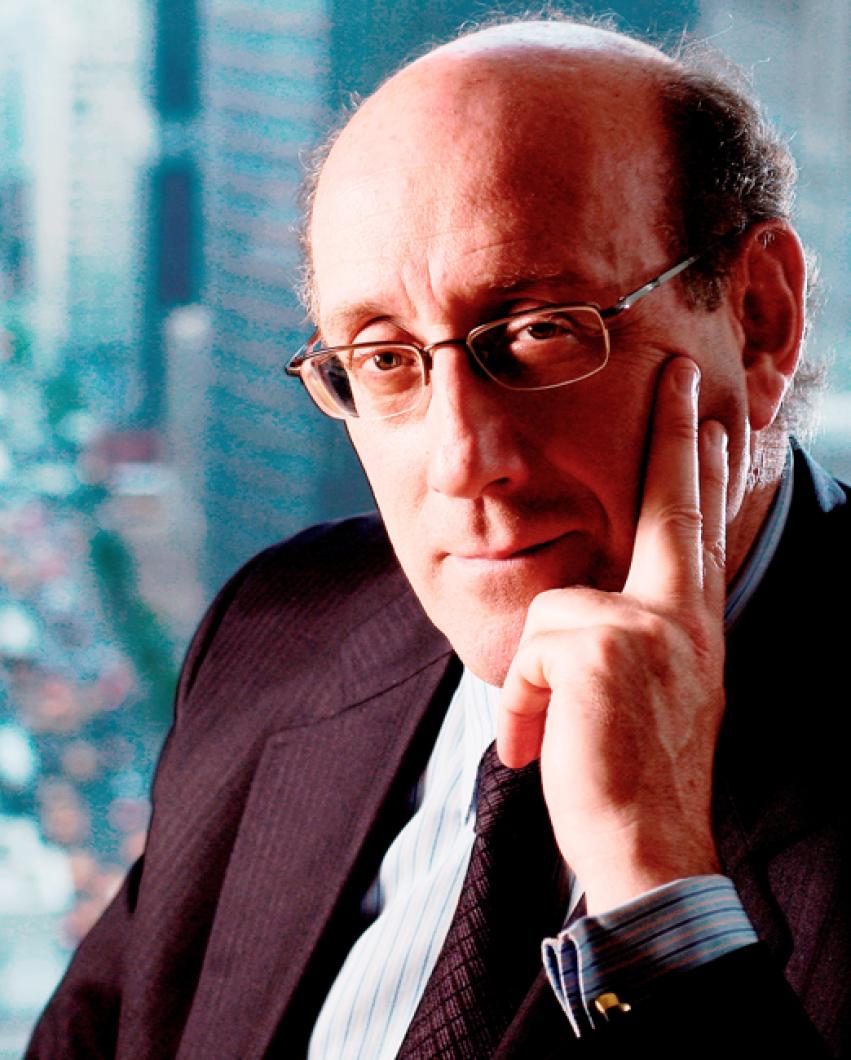With the future impact of the BP oil spill still as murky as the fouled waters of the Gulf, the job of compensating victims has fallen on the well-worn shoulders of Brockton native and 20-year Vineyard vacationer Ken Feinberg.
“It will be difficult, people are naturally skeptical and worried,” Mr. Feinberg said in an interview last Friday at the Black Dog Café in Vineyard Haven. “I’ll try to be as generous as I can and factor in their degree of risk and worry, but at the end of the day they’ll make the decision whether to accept my offer.”
Catastrophes are nothing new to Mr. Feinberg, who has become almost a modern day Solomon, mediating some of the most intractable and complex compensation disputes imaginable. He became a household name after Sept. 11 when he was tapped to oversee the distribution of over $7 billion of the government’s Victim Compensation Fund. The job required that he meet, mostly face to face, with thousands of victims’ families and in many cases determine the worth, in dollar amount, of lost loved ones.
It wasn’t the first unusual and unusually difficult task in a career that has included mediating a veterans’ class action lawsuit against the makers of Agent Orange, distributing a victims’ fund in the wake of the Virginia Tech shooting, determining the fair market value of the Zapruder film, setting executive compensation for bailed-out bankers in the wake of the collapse of the financial system.
And now BP.
Mr. Feinberg has been given unprecedented autonomy to dole out much of BP’s $20 billion escrow account set up to compensate the victims of this summer’s oil spill.
“I’m totally independent,” he said. “I’m not beholden to the government or the oil company.”
For Mr. Feinberg it has been a delicate balance between administering funds expediently while not inviting fraud in the rush to cast a lifeline to victims. He asserts with some pride that in less than two weeks he has already paid out $73 million in claims to 4,500 individuals and 1,500 businesses, but is quick to mention the Justice Department’s ongoing antifraud initiative in the region. Fraud poses a particularly pernicious problem in a disaster where Mr. Feinberg says the claimants’ lack of documentation has been widespread.
“We’re confident that we’ll be able to stop it, but at the price of a slowed-down process of adjudication,” he said.
With his booming Massachusetts accent and his liberal elite credentials (he served as Ted Kennedy’s chief of staff in the 1970s), you might think he would be out of place at a gathering of disgruntled Louisiana shrimp boat captains, but he says he’s been well received by the Gulf Coast community.
“One thing I’ve learned in all of these types of mass disasters is that you’ve got to move to the location,” said Mr. Feinberg who spent the summer shuttling among Alabama, Florida, Texas, Mississippi and Louisiana. “You’ve got to meet the claimants. You can’t do this from Washington, you can’t do this from Martha’s Vineyard. You’ve got to actually travel to the affected region and meet with the people and listen to their frustration,” he said.
After Sept. 11 those people included the wives of missing firemen, and although the problems he hears about in his current charge are mostly economic, daily he encounters stories of staggering hardship.
“You hear over and over again, ‘I’m a seventh generation fisherman, I don’t know if I’ll ever be able to fish again,’ ” he recounted.
Not all of his cases have been as gut-wrenching though. In his role as compensation czar (a title he despises) Mr. Feinberg could have been forgiven for finding the claims of disgraced bankers, who nearly toppled the world economy but still demanded multimillion dollar salaries from American taxpayers, petty compared with previous clients.
“Try telling that to the bankers,” he said. “They got just as emotional as anyone else about their compensation.”
And although Mr. Feinberg’s attempts to reform the culture of executive compensation seem to be regularly challenged by headlines of profligate Wall Street robber barons, he is not discouraged.
“I don’t think you can paint with a broad brush,” he said. “Some companies have adopted my prescriptions; others have not; some have it under advisement — I don’t think you can draw any conclusions yet. I’d like to see in five years whether executive compensation practices have been modified.”
Last Friday as Earl lurked offshore, still a potential disaster, Mr. Feinberg was unfazed. This was a brief respite from his trips to the Gulf, where an actual disaster was still unfolding.
“At our place on Makonikey we’ve brought in some candles and flashlights, Humphrey’s sandwiches and Black Dog pies,” he said sipping his coffee. “But we’ve heard that by tomorrow morning it should be a beautiful day.”
This week found Mr. Feinberg once again in Louisiana meeting with business owners whose livelihoods have been decimated by the seaborne sludge. For a man who has made a career helping people come to terms with and eventually move on from life’s great calamities, he occasionally strikes a fatalistic tone.
“I hope there aren’t any more giant disasters but they always come; it’s the way it is,” he said. “That’s what life is all about.”




Comments
Comment policy »